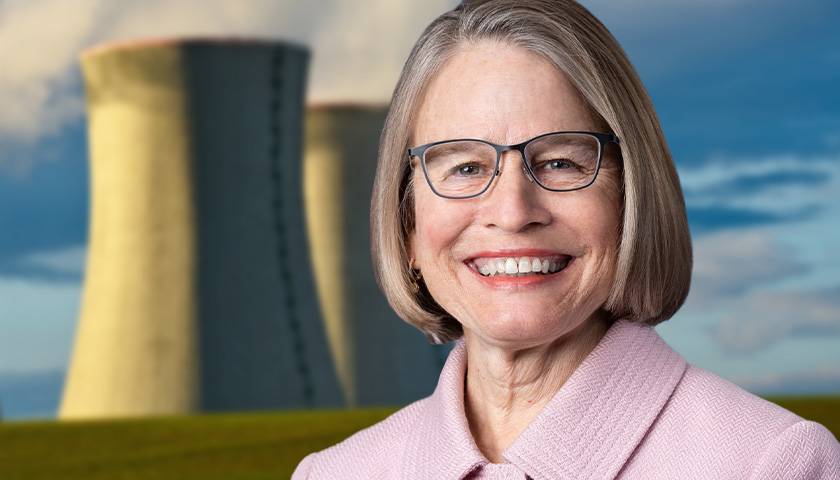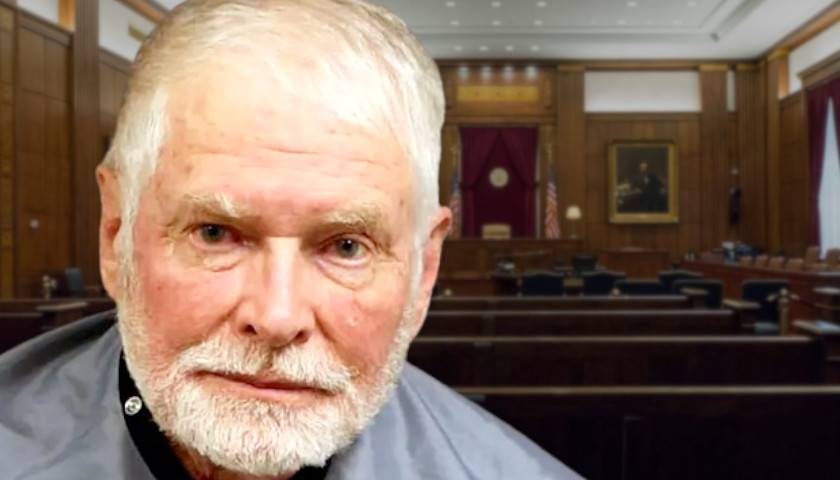by Addison Smith
Alternative clean energy plans to the Democrats’ Green New Deal are getting a boost from a new generation of nuclear energy technology, which can produce zero-carbon emission electricity with a much smaller footprint than earlier reactors.
The innovations and advances of the nuclear power industry are gaining favor from Europe and Asia to America, transforming a debate that has been dominated over the last decade by solar and wind development.
Rep. Mariannette Miller-Meeks, R-Iowa, who sits on the House Energy and Commerce Committee and serves as Vice Chair for the Conservative Climate Caucus, said nuclear has “come back into the forefront” of the energy policy because it is abundant, continuously generating and zero emissions.
“We want a cleaner, healthier planet,” Miller-Meeks told a recent Just the News special report sponsored by ClearPath “But we also want to be able to compete economically around the globe.”
Wind and solar, she said, cannot provide a “continual base load that will be able to provide energy and electricity if the sun’s not shining, and the wind isn’t blowing.”
By contrast “natural gas and nuclear are two of those things” that can, and nuclear specifically can do so while helping “lower carbon emissions.”
Nuclear energy has been an integral part of America’s energy grid for more than 6 decades. It’s also the nation’s largest domestic source of clean energy to date, accounting for 47 percent of “carbon-free electricity in 2022.”
“[Natural gas and nuclear] are energy sources that we have available now that can provide the capacity to be able to have a continual energy source,” Miller-Meeks told Just The News. “We have enough experience with wind and solar: They don’t have the capacity.”
Democrats have long been pushing for America to ditch fossil fuels and rely fully on renewable energy, a primary goal of Rep. Alexandria Ocasio-Cortez’s Green New Deal, which a 2019 study predicted would cost $93 trillion. But cost aside, the deal has also been described as “likely technologically impossible” by North American Electric Reliability Corps Robert Blohm for many reasons, chief among them being that “you can’t spontaneously increase wind or sunshine.”
Citing the ongoing Russia-Ukraine war, Miller-Meeks explained that focusing more on nuclear can also help America keep national security concerns at bay.
“[Europe] found out that relying upon Russia for oil and gas and natural gas put them at a disadvantage,” she stated. “So when Germany stopped [fracking],” much of Europe found itself in trouble, but countries like France were able to stay afloat better because it gets “most of its electricity from nuclear.”
“[France] did not have the same national security and energy insecurity risk as did Germany… So I think that there’s this rebirth of nuclear, looking at it as a clean fuel, safer technology… We’re getting acceptance through the public for nuclear,” she added.
Under the Democrats’ Green New Deal, America would necessarily lose energy independence and be heavily reliant on the Chinese Communist Party for its energy needs, a move that could spell disaster for America’s national security.
China owns most of the rare earth elements required to produce green energy such as cobalt and lithium, and “either directly owns or in some way controls” most of the global mine supply of the elements as well, according to a report from the Institute for Energy Research.
A Gallup poll released in April found that the majority of Americans view nuclear energy more favorably than they have in over a decade, with 55 percent feeling “strongly” or “somewhat” that it should continue to power the electric grid.
As such, Miller-Meeks said Republicans will continue to “advance” clean nuclear energy solutions, and will introduce legislation in the “very near future” to achieve it.
Last month, the Subcommittee on Energy, Climate, & Grid Security, led by Republican Congressman Jeff Duncan, held a hearing on “American Nuclear Energy Expansion.” Responding to Germany’s energy crisis after it shut down its last three nuclear plants, Rep. Duncan stressed that nuclear “must be part of our energy matrix” in America.
“To expand the [nuclear] industry, it is vital we encourage regulatory certainty and make sure our reactor licensing processes enable the safe and broad deployment of nuclear technologies,” he said in the hearing.
Duncan also said nuclear power gives America “significant geopolitical advantage and leverage” because of the “robust nuclear export market” that can enable the country to set nuclear “norms” across the globe.
America’s adversaries are capitalizing on their nuclear leverage. The New York Times recently reported that China is trending to become a “nuclear superpower,” which Duncan warned could present the U.S. with significant challenges.
“We cannot cede our global leadership to our adversaries… We must prioritize modernizing our regulatory structure in the United States and do what is needed to encourage growth throughout the industry,” he cautioned.
– – –
Addison Smith is a reporter at Just the News. Follow Addison on Twitter.
Photo “Mariannette Miller-Meeks” by House Creative Services. Background Photo “Nuclear Powerplant” by Lukáš Lehotský.





